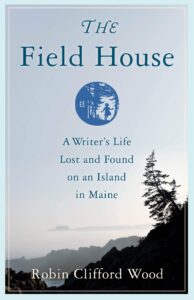After seven years of work on the biography of a renowned author and poet from the 1920s and ‘30s, my book was stalled. What was in my way? That year, my first fall as a college writing instructor, I began the semester by telling my students, “Each of you has a unique voice. You have a story to tell. My job is to help you find your voice, find your story.”
Like many teachers before me, I was slow to recognize that my own writing needed exactly the work I was assigning my students. I needed a teacher to help me find my way.
I had two hundred pages of Rachel Field’s life written, incorporating research findings from all over the country. I had scoured archives, pored over Rachel’s letters and unpublished manuscripts, unearthed long-buried secrets about her life. Her beginning as a Newbery-Medal-winning author (for Hitty, Her First Hundred Years) was followed by a National Book Award for fiction (for Time Out of Mind). Rachel left the east coast for Hollywood. The first of three films made from her novels had been nominated for best picture and she’d become a sought-after writer by major studios like MGM and Disney. Then her bright light was abruptly extinguished by a vaguely identified, deadly illness. In the course of my research journey, Rachel had become my muse and mentor, inspiring me not only by her work ethic and her successes but by her warmth and generosity of spirit.
Her death devastated me. She had so much left to live for. I was carrying a torch for Rachel Field, determined to rescue her from oblivion.
Determination alone can’t sell a book. Extensive agent and publisher shopping had garnered me a few supportive pats on the shoulder, but no one willing to invest in the project. She’s too unknown, they said. The book won’t sell. I needed to find the pulsing heart of Rachel’s story, but how?
 I gave several talks about Rachel Field’s life during those research years. In counterpoint to the uplift of her presence, both in print and in person, I discussed Rachel’s insecurities over her large, masculine features, a sibling rivalry that escalated to the point of madness, a secret heartbreak, a long-unrequited yearning for a child, the mystery of her sudden death. However, the moment when my audiences straightened in their seats and leaned forward came when I began to talk about how my life interlaced with Rachel’s in an old house on an island off the coast of Maine, first owned by Rachel, later by me. I described how uncanny coincidences kept Rachel at the forefront of my mind and changed the trajectory of my career. “Put that part in your book,” they’d say.
I gave several talks about Rachel Field’s life during those research years. In counterpoint to the uplift of her presence, both in print and in person, I discussed Rachel’s insecurities over her large, masculine features, a sibling rivalry that escalated to the point of madness, a secret heartbreak, a long-unrequited yearning for a child, the mystery of her sudden death. However, the moment when my audiences straightened in their seats and leaned forward came when I began to talk about how my life interlaced with Rachel’s in an old house on an island off the coast of Maine, first owned by Rachel, later by me. I described how uncanny coincidences kept Rachel at the forefront of my mind and changed the trajectory of my career. “Put that part in your book,” they’d say.
But I resisted. This is Rachel’s story, not mine, I thought. A biographer’s voice isn’t supposed to be self-referential. No way was I going to let my voice, my story, take over hers.
My epiphany struck in the summer of 2016 at a writing conference. Dinty Moore, the acclaimed writer of books for writers and our workshop leader, gave us a prompt: Write a letter you might never send, addressed to someone who might never read it. Rachel leapt to mind. Dear Rachel, Are you mad at me? Am I telling too much? Too little? Getting it all wrong? As I addressed my insecurities and doubts to this woman I so deeply admired, I discovered my solution. I didn’t have to give up Rachel’s voice or her story; I could just add my own.
Over the next year, I revisited the entire book, inserting letters from me to Rachel at the beginning of each chapter. How liberating it was to release my own voice onto the pages of Rachel’s life! While her story remained, with its objective narrator and its highlights of Rachel’s own voice in poetry and letters, my story stood nearby, also heard but not obstructing hers. The result of this intertwining of biography and memoir was nothing I had ever imagined, but the book finally felt complete. Two voices, two stories, one whole.
I’d never read a biography-memoir hybrid and certainly didn’t set out to write one, but that’s the book that emerged, with guidance from the past and the present. If we remain patient, open to innovation, and willing to work through the days of despair, our voices and our stories will find us. Listen to your teachers, no matter how old you may be.
Listen to the voice that is inside of, and give it a chance to be heard. You never know where it might take you.
The following summer, eleven years after taking on Rachel Field’s story, a “congratulations” email appeared in my inbox from She Writes Press. My book had found a home. Fittingly, I was on Sutton Island, the glorious haven of sea and sky, moss and mushroom that brought Rachel and me together. I gave a whoop to the spiky treetops of spruce, and they waved their applause to the sky.


